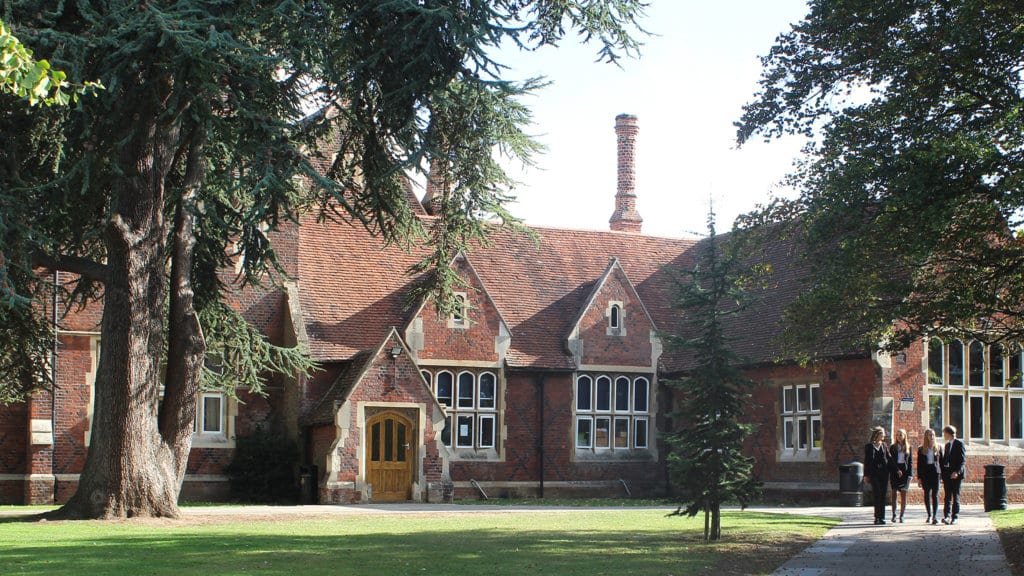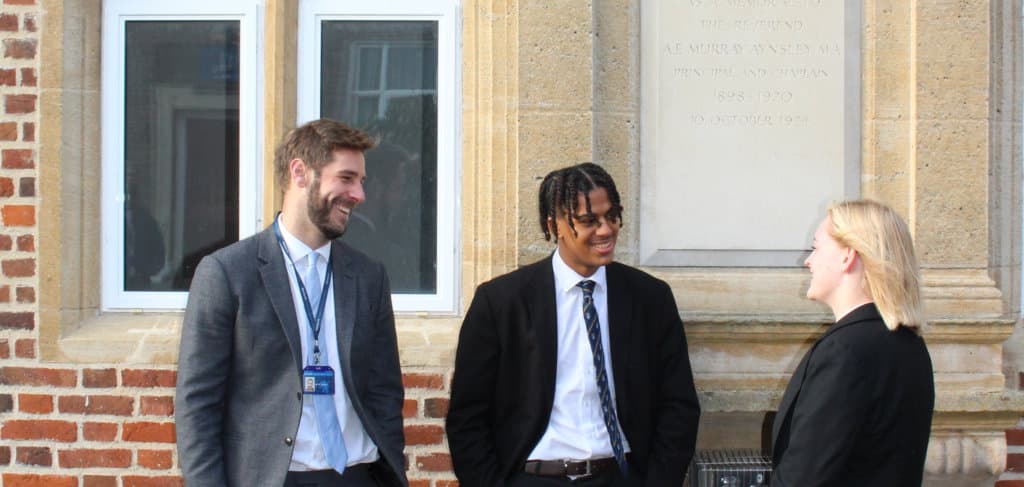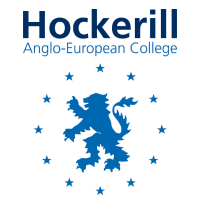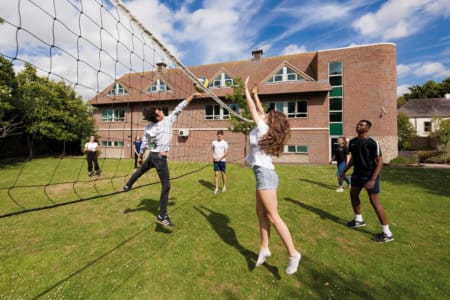Hockerill Anglo European College believes every student can shine given the right opportunities — and the College has a track record of success to prove this.
Located on a campus in Bishop’s Stortford, 10 minutes from Stansted Airport, Hockerill is a state co-educational and boarding college for students between the ages of 11 to 18, and has two main intake years, Year 7 and Year 12.
At Key Stage 3 (Years 7, 8 and 9) and Sixth Form (Years 12 and 13), it proudly teaches the Middle Years Programme (MYP) and the prestigious Diploma Programme (IBDP) of the International Baccalaureate — an internationally recognised qualification sought after by all universities in the UK and internationally.
Hockerill students achieved IBDP results better than the global average. Last year, 123 students sat for the IBDP as an alternative to A Levels, and achieved an average score point of 36 — four points more than the global average of 32 and equivalent to 4 As at A Level. Globally, 772 students achieved a perfect score of 45 points — two of them were from Hockerill.
Many students go on to some of the best universities in the UK and across the globe, with 75% of those heading to university joining Russell Group institutions in 2022.
“The destinations for our students who depart the college post-Sixth Form outlines the excellent education and the breadth of the IBDP,” says Will Conolly, Director of Boarding.
Yet, the impact of a Hockerill education goes far beyond just good grades. “The idea of doing the IBDP was very intriguing, because I had not decided what I want to do in the future. Studying six subjects meant that I could have a wide variety of options,” says Majid, a 17-year-old student from Zanzibar. Had he taken A Levels, he would have had to specialise in only three subjects from age 16.
Broad and balanced, the IBDP lets students explore three higher-level subjects and three standard-level subjects. They also complete an Extended Essay (ideal preparation for a university thesis), CAS (Creative, Active, Service) which offers a balanced whole-person education, and Theory of Knowledge. “The college also has a very international focus offering a multitude of language programmes such as Spanish, French, German, Japanese and Chinese” says Majid.

Students have access to great support and facilities at Hockerill Anglo European College. Source: Hockerill Anglo European College
Languages are not the only area where students excel. IB students have significantly higher levels of critical thinking and global-mindedness than their non-IB peers, according to two multi-country studies. They are better at “taking on new challenges,” “learning to persevere” and “developing better interpersonal skills.” They’re likelier to go to university — and good ones as well.
Majid developed skills in time management, leadership and ethics — and he credits his broadened skillset and horizons to his teachers.
“Doing the IBDP is a lot of work, but it is manageable with organisation and hard work. The teachers at school have been very helpful, they are always available when needed, and always try to make time,” he says. “They give a lot of feedback on tests and exams, and a few of my teachers made a feedback sheet for me after my mock exams, giving me the information I need to make progress and increase my grades,” Majid says.
When Majid first joined, he wasn’t this vision of a confident young man. He was anxious — until the end of the first night. He met two roommates who were friendly and welcoming and it wasn’t long before he bonded with them and many other boys. “I cherish the fact that the school is very diverse. I have become friends with numerous other students from all around the world and I got to learn about a great number of cultures and traditions,” he says.
By the end of his first month, he felt settled in. “One of the challenges I faced was finding my way around the school as I was not familiar with the locations of the classrooms. However, after the first month, I have become familiar with the school, my peers and my teachers, who were very patient with me whenever I asked them to guide me or give me direction.”
Boarding at one of the UK’s largest maintained boarding schools comes with a range of stimulating and challenging experiences. Outside of college hours, students get to go on weekend trips to formal dinners, discos, sporting events, quizzes, concerts, film nights, visits to London, Cambridge and the coast, theme parks, and outdoor activity centres.
“The aim is to provide a breadth of opportunities for all students. We offer in excess of 100 extra-curricular clubs, ranging from sports and music clubs to Model United Nations and Combined Cadet Force,” says Conolly. “An extensive list of trips and exchanges run to support student’s development outside of the classroom, whether that be European exchanges or outreach work in Uganda.”

At Hockerill Anglo European College, peers, teachers and staff are always ready to help — making for a tight-knit community on campus. Source: Hockerill Anglo European College
The richness and diversity of boarding life prepare the next generation for their next steps — with no shortage of adventure along the way. As they live away from home, students must learn quickly to undertake many new tasks which they may have never done previously, though with plenty of support from staff.
“Boarding teaches so many invaluable life skills,” says Conolly. “The three in particular that students are able to develop within our boarding community are independence, social skills and confidence”.
Outstanding support from teachers encouraging students to be independent, affordability, and excellent education – these were the features that first drew Elsie to Hockerill.
When she first joined the Sixth Form from Mallorca, she was nervous to meet the people she would live with for the next two years. A “super fun” first night broke the ice and she still remembers what her Head of House said then. “[She said] These are the people who will be at our weddings and there for you in difficult times,” Elsie says. “She was absolutely correct.”
Asked to describe her Hockerill journey in three words, Elsie says, “Challenging, because going somewhere new and integrating into a new community is always a challenge. Rewarding, because the hard work everyone puts in pays off. Meaningful because of the amazing experiences I’ve had here.”
Follow Hockerill Anglo European College on Twitter












